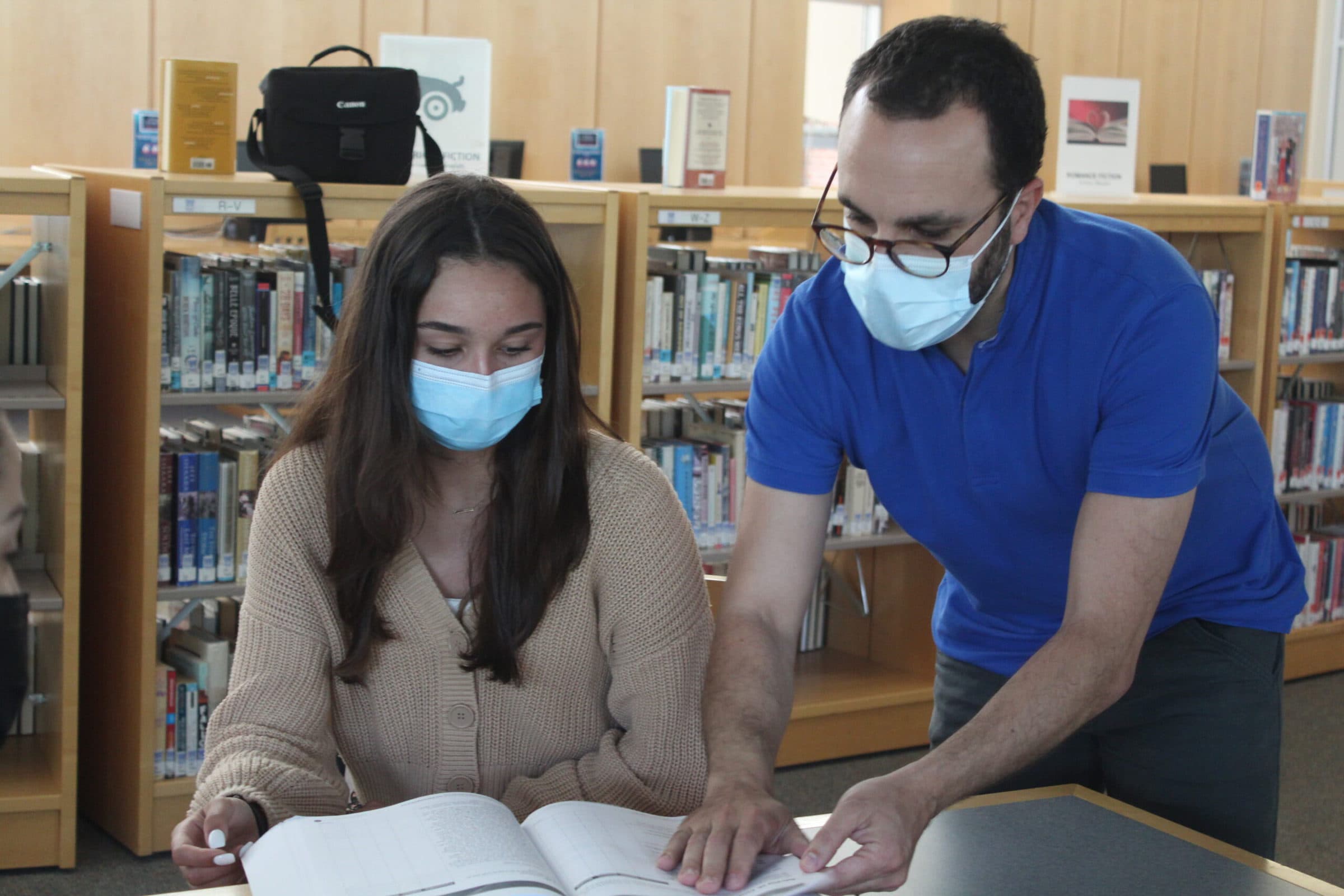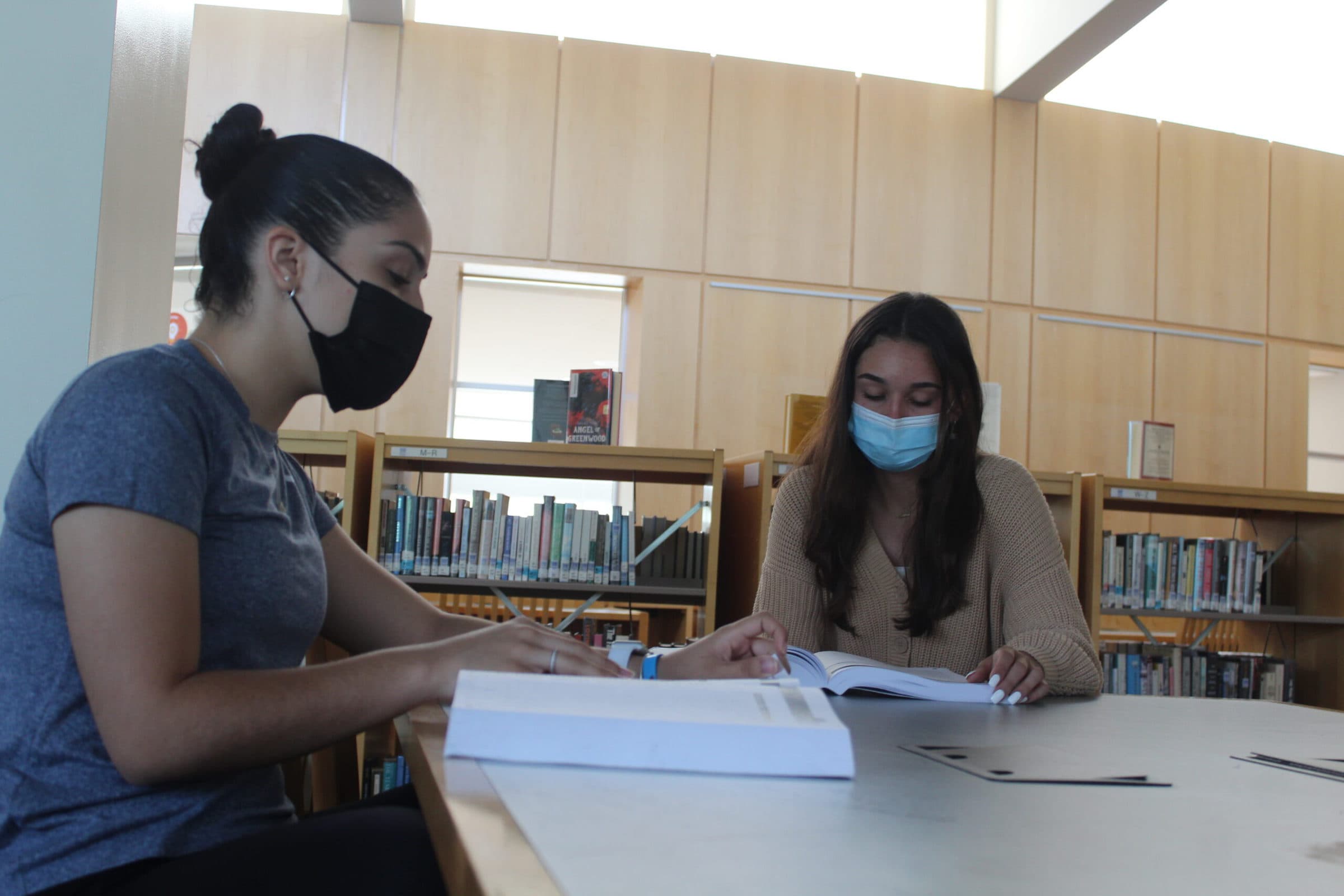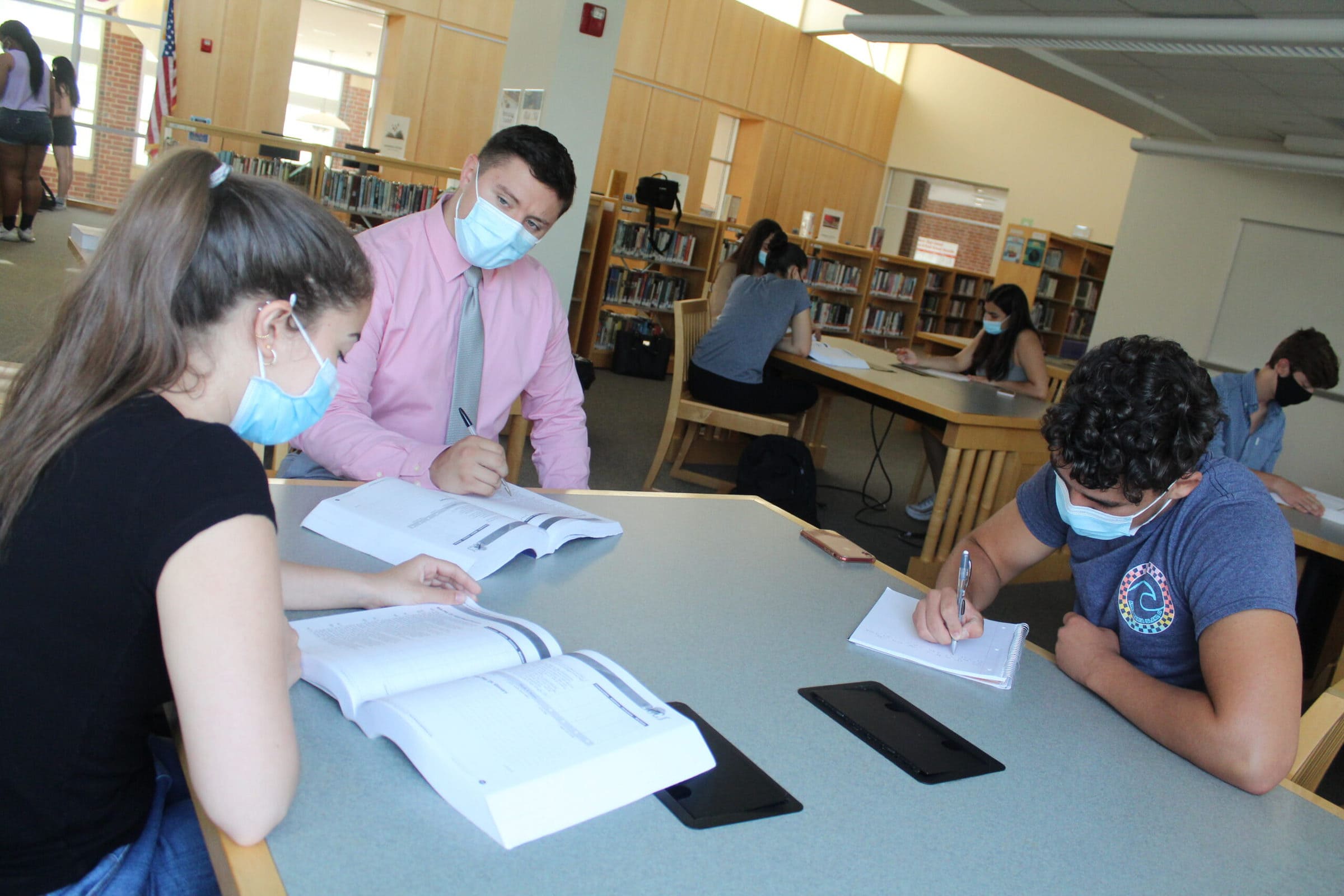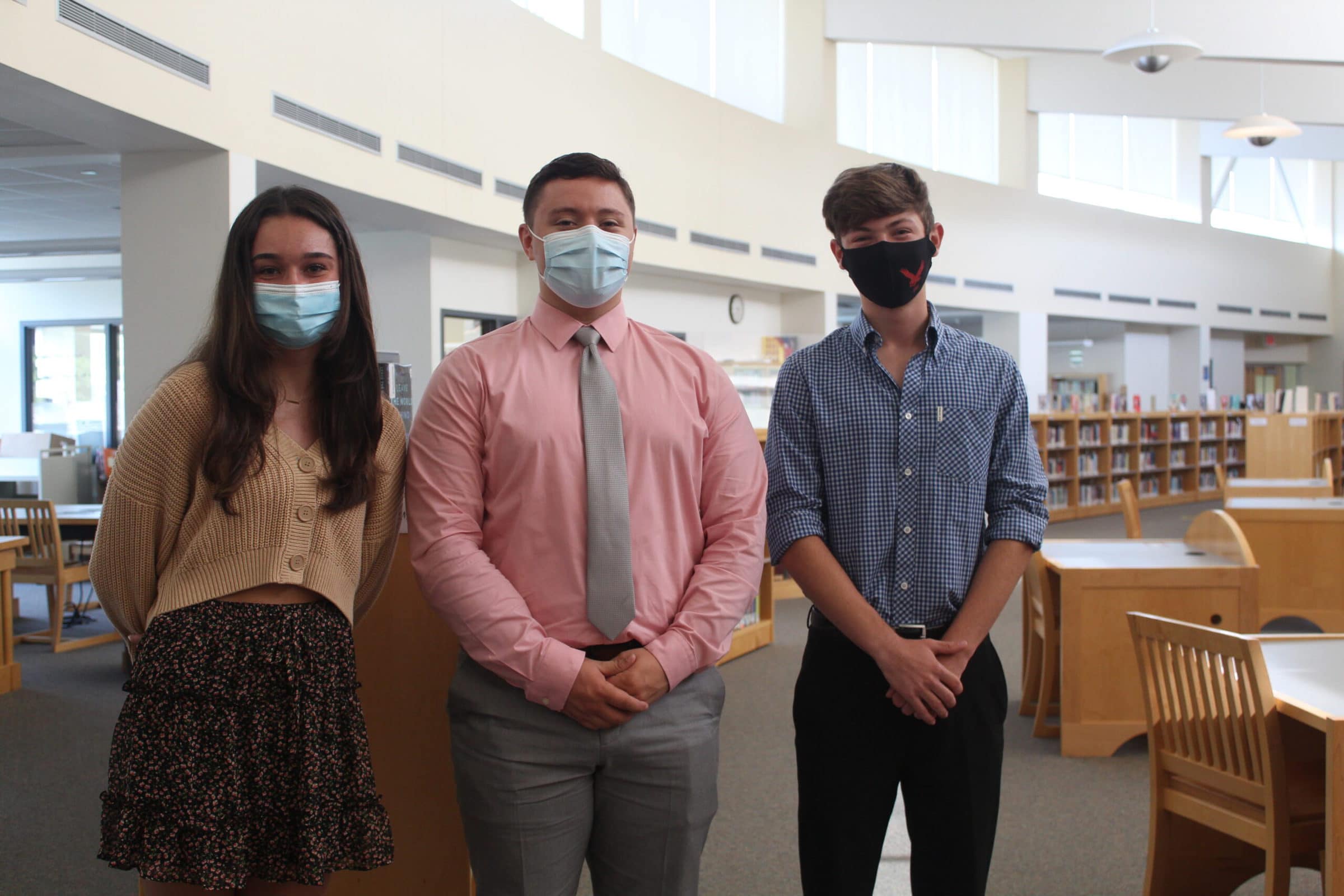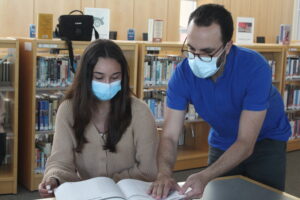
Teacher Aníbal Serra with Julie Kuhn.
By Laura Hayes, Contributing Writer
HUDSON — In the corner of the Hudson High School library, students recently gathered in groups of three, practicing to be Portuguese medical interpreters.
Aníbal Serra, the teacher, told the students that one of them would be acting as a patient with high blood pressure, another student would be the interpreter, and another would act as the doctor.
One of the students acting as a “doctor” was Class of 2021 graduate Alex Colleoni-Pimenta, who was one of six seniors recommended to recently sit for the certification exam to become a medical interpreter.
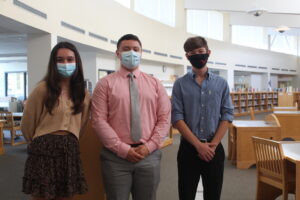
Class of 2021 graduates Julie Kuhn, Michael Peckham and Alex Colleoni-Pimenta tested to become medical interpreters.
“It’s this whole other field of information that we weren’t exposed to that much,” Colleoni-Pimenta recently told the Community Advocate. “… Medical interpretation has allowed us to expand in our knowledge of this whole entire medical field in two different languages, which is crazy.”
The program behind this was started in 2018, and its first class graduated in 2020. World Language Curriculum Director Ana Pimentel said the students in the program leave high school ready to start a job.
It’s a two-year program taken during junior and senior years and done in cooperation with the Woburn-based Cross Cultural Communications Services (CCCS).
Pimentel heard about the opportunity during a World Languages conference. She was talking with a colleague that worked in Brockton that had a similar training program.
“I said, ‘This would be amazing for our kids,’” Pimentel recalled.
She said some students who spoke Portuguese at home resisted studying it when they came to school because they didn’t see the value.
“I thought that this would be a way for them to see how their skills can be used immediately after graduation in real life and make money,” Pimentel said.
So, CCCS came in and trained Hudson teachers to be medical interpreters, including Pimentel. Compared to the two-year program Hudson students participate in, the teachers completed an intensive 10-day course.
“It was really intense,” Pimentel said.
The students need to have a high level of proficiency in Portuguese and English to be in the program. Typically, they’re recommended for the class by teachers.
Senior Michael Peckham was the only non-heritage Portuguese-speaking student in the program this year, but he had taken classes with Serra, who had asked him to consider joining it.
“The real reason that I wanted to do it was to take on the challenge,” Peckham said.
He worked hard, reading materials in Portuguese before going back in English to see if he missed anything.
Colleoni-Pimenta described the classes as “cooperative” in which students helped and corrected each other.
While those students enter the program knowing both Portuguese and English, Pimentel said part of the class is spent honing their Portuguese, learning how to be professional and also growing their medical vocabulary.
“They need to understand how the heart works because when they are interpreting for a doctor, they will do a much better job if they understand a little bit,” Pimentel said.
Part of the class also involves practicing interpretation in groups of three, with students playing the roles of doctor, patient, and interpreter.
Passionate about science, recent graduate Julie Kuhn said her favorite part was learning the scientific terms and the diagrams of the body.
“I think this class emphasized my love for the science field,” she said. “I definitely want to go into some health field when I’m older. This class helped tremendously. I know a lot more vocabulary than I would without it.”
CCCS runs the final exams for the certificate for the students to work as medical interpreters when they turn 18. That exam includes both a written and practicum portion.
Kuhn said the test was what she and her classmates had expected.
To get certified, students need to pass their class with at least an 85 percent grade while also passing the exam, in addition to other CCCS requirements, Pimentel said.
“We’ve come so far, every single one of us,” Colleoni-Pimenta said. “It was incredible. I cannot imagine the things that I know now I would have known two years ago. I’m so glad I took the class.”







